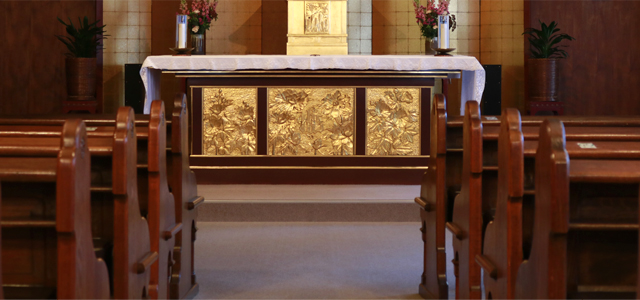
Catholic Q&A
A Christian friend informed me that the Catholic Church is not faithful to the Bible, and that it teaches as doctrine things that are not in the Bible. Is this true?
There is some misunderstanding here. The Catholic Church certainly has what is referred to as doctrine, created in the course of a lengthy tradition. There is also an office having the authority to defend and communicate this doctrine. However this is not something limited to the Catholic Church, since it is more or less needed in all Churches. If there were no doctrine and no authority to communicate it, there would be no Church. Even if it be an entirely private group of believers, a Church that seeks to be one throughout the world and through all ages needs an office to protect its teachings from error, to interpret them according to the needs of each age, and to teach and guide its members. This is referred to as Kyodo Shoku, the Church’s asserted authority or position to give a genuine interpretation of the Word of God.
In the first place, Jesus himself when he sent his disciples out to various places, endowed them with His own authority saying, “He who listens to you listens to me, and he who rejects you rejects me.” (Luke 10.16). Also, in the primitive Church that had just been born, the teachings of the apostles became the foundation upon which the community of believers was raised. Even the new Testament was written within the life of such a Church.
That the Church of Christ has to be faithful to the teachings of the Bible is obvious, but the problem is that weak people occasionally tend to interpret the Bible in their own way. People at times claim to value the Bible, but due to their different ways of interpreting it disasters can also occur, such as the splitting of the Church into numerous denominations. Hence, in order to interpret the Bible in an approved manner, the Catholic Church places great significance on the traditions of the Church, as well as on the teaching ministry that serves it. We are of the view that the tradition of the living Church is the place to interpret the Bible in an appropriate manner.
The Catholic Church’s view of tradition and doctrine is thus. Doctrine does not mean to teach something that is not in the Bible. It is to interpret and express the content of the Bible in response to the needs of each era. Hence, many doctrines have been proclaimed over the course of 2,000 years of history, and as many of them are now archaic, they do not appeal much to the people of today. Also, as not all of them are vital, we do not need to know them all. Hence, those in charge of teaching and guidance, have the obligation of deciding what is essential and what is incidental or terminal in tradition. They also need to reiterate and convey this suitably in terms understandable to the people of today and to teach and guide Christians the world over, so that they may be of one mind and share in the one faith.
